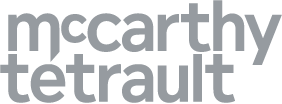
24 kilometres from Kyiv, the town of Bucha, Ukraine, quickly became a frontline in the Ukrainian effort to resist Russian invasion. Russian forces began to withdraw from the region around March 30, purportedly due to resource shortages. Journalists have since gained access to the town and have taken account of what appear to be atrocities involving the killing of civilians. The mayor of Bucha has indicated that over 300 residents have been killed. The Bucha massacre has led to additional discussions around Russian war crimes by the UN Security Council.
With this as backdrop, Canada and several allies continue to increase economic pressure on Russia and its enablers by taking aim at “close associates” of the Russian and Belarusian government for having “facilitated and enabled violations of Ukraine’s sovereignty, territorial integrity and independence”. New Canadian measures which appear to have been prepared prior to the Bucha massacre formally took effect on April 5. Canada’s Foreign Affairs Minister Melanie Joly confirmed the measures demonstrate that “Canada will not relent in holding Vladimir Putin and his enablers accountable for their egregious and illegal actions”.[1]
Canada’s international counterparts have responded to the Bucha massacre
On April 6, the United States announced new sweeping sanctions against Russia directly resulting from the Bucha massacre, that target Putin’s two adult daughters and the wife and daughter of Sergei Lavrov, Russia’s foreign minister, and impose full blocking sanctions on Russia’s largest financial institution (Sberbank) and its largest private bank (Alfa Bank), as well as their subsidiaries.[2] These new blocking sanctions on Russian banks bring the United States into closer alignment with Canadian measures against Russian banks.
The United States also prohibited all “new investments” in the Russian Federation by U.S. persons, though we note that “new investment” is not defined in U.S. President Biden’s Executive Order.[3] Canada may follow suit on this in the days to come.
The United Kingdom further announced it would freeze the assets of Sberbank, and will ban imports of Russian coal by the end of 2022. Outward investments to Russia (worth over $14.4 billion in 2020) will also be prohibited, along with the export of key oil refining equipment and compounds.
Meanwhile, the EU Commission proposed a fifth package of sanctions on April 5, including a prohibition on the import of all types of coal from Russia (worth approximately €4 billion per year), a full dealings ban on four large Russian banks including VTB, as well as export bans and a broader package of measures that would further control trade with Russia.[4] EU ambassadors are presently in the process of meeting to reach a final agreement on the package, including the whether the ban on coal would affect existing contracts or be subject to a phase-in measure.[5]
The new sanctions further add to Canada’s ever-expanding list of designated persons in Russia and Belarus
In Canada, new sanctions took effect on April 5, 2022 by way of amendments to the Special Economic Measures (Russia) Regulations (“Russia Regulations”) and to the Special Economic Measures (Belarus) Regulations (“Belarus Regulations”). A total of 18 additional individuals were added to the Russia and Belarus Regulations Schedule 1 lists, which now total 726 individuals and 136 entities for Russia and 50 individuals and 25 entities for Belarus with whom any person in Canada and any Canadian outside of Canada are largely prohibited from “dealing”, including in respect of listed individuals’ property, the provision of financial and related services, and the provision of goods. Another 206 individuals and 42 entities are listed for Ukraine.
Notable additions to the Russia Regulations list include Viktor Vekselberg, Chairman of Russian conglomerate Renova Group, and a Ukrainian-born Russian-Cypriot multi-billionaire oligarch. Vekselberg is known for his close ties to the Kremlin, having overseen a number of projects to modernize the Russian economy. On April 4, U.S. authorities accused Vekselberg of conspiring to commit bank fraud and money laundering in the negotiations and purchase of a $90 million mega-yacht, which was seized pursuant to a U.S. FBI warrant and executed in Spain.[6] U.S. sanctions also target Vekselberg’s private jet.
Canada also added to its sanctions list Vladimir Potanin, one of the main shareholders in Norilsk Nickel, and Leonid Mikhelson, the founder, chairman and co-owner of natural gas producer Novatek.
Read more >>
Authors
- John W. Boscariol
- Martha Harrison
- Ljiljana Stanic
- Ashley Taborda